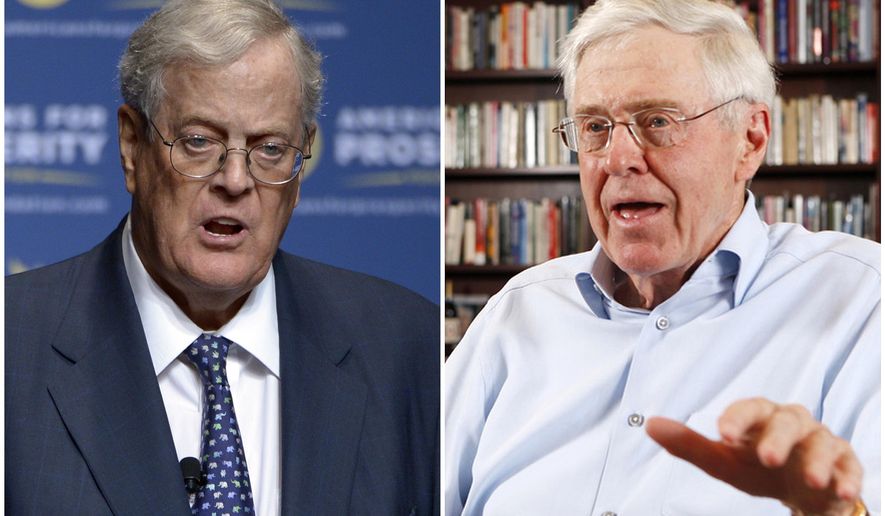
The rift between President Trump[1] and wealthy Republican donors Charles[2] and David Koch[3] widened Tuesday as the president called the industrialist brothers a “total joke,” following their decision to withhold financial support from the GOP Senate candidate in North Dakota.
Although the Koch[4] network has spent heavily to promote the GOP[5] tax cuts and Mr. Trump[6]’s Supreme Court[7] nominees, the president said in a series of tweets that their network is “highly overrated.”
“The globalist Koch[8] Brothers, who have become a total joke in real Republican circles, are against Strong Borders and Powerful Trade. I never sought their support because I don’t need their money or bad ideas,” Mr. Trump[9] tweeted.
Former White House[10] strategist Steve Bannon went further, saying the Kochs’ political operation is a “scam” that has lost influence and that Trump[11] allies will punish candidates who accept financial backing from the Koch[12] network.
The Kochs and Mr. Trump[13] have never been a comfortable fit. Owners of the second-largest privately owned company in the U.S., the brothers rose to prominence politically in 2010 when they aligned themselves with the tea party movement, spending about $125 million on the election cycle that featured a conservative backlash against Obamacare and a Republican takeover of the House that has lasted until now.
Koch Industries[14] spent $3.3 million in political contributions in 2012, then increased its donations to more than $11 million in both the 2014 and 2106 cycles, according to the watchdog OpenSecrets.org. The brothers’ network of high-level donors contributed hundreds of millions of dollars more to influence voters, including spending through advocacy groups such as Americans for Prosperity and Freedom Partners.
They also have funded the group Concerned Veterans of America, which has advocated greater outsourcing of veterans’ healthcare services, a move also favored by Mr. Trump[15].
But the Kochs didn’t endorse Mr. Trump[16] in 2016. Although they aligned with him on deregulation, tax cuts, prison reform and conservative judicial nominees, they opposed part of his “America First” platform, including his hard-line stance on immigration and trade policies that have resulted in tariffs.
“It’s always been kind of an uneasy relationship,” said Republican consultant John Feehery[17]. “They have two different visions. The president’s vision is specific — it’s against globalization. It’s ‘paleo-conservative,’ whereas the Kochs are libertarian. Obviously, there’s going to be tension between the two visions.”...
He said the Koch[18] network’s political donations “are important but they’re not essential.”“The Kochs are important. Trump[19] is more important,” Mr. Feehery[20] said. “They didn’t run for anything, they just have a lot of money.”A spokesman for the Kochs, James Davis, said the
